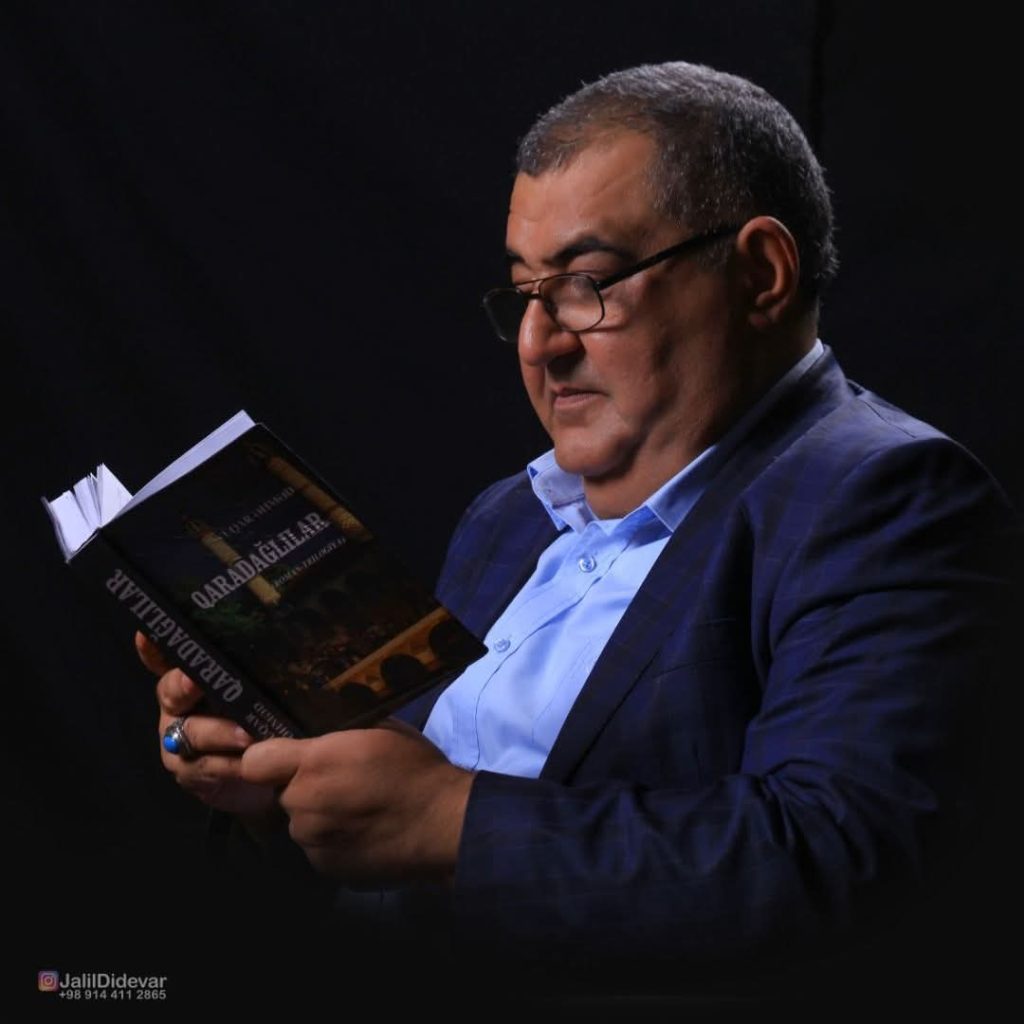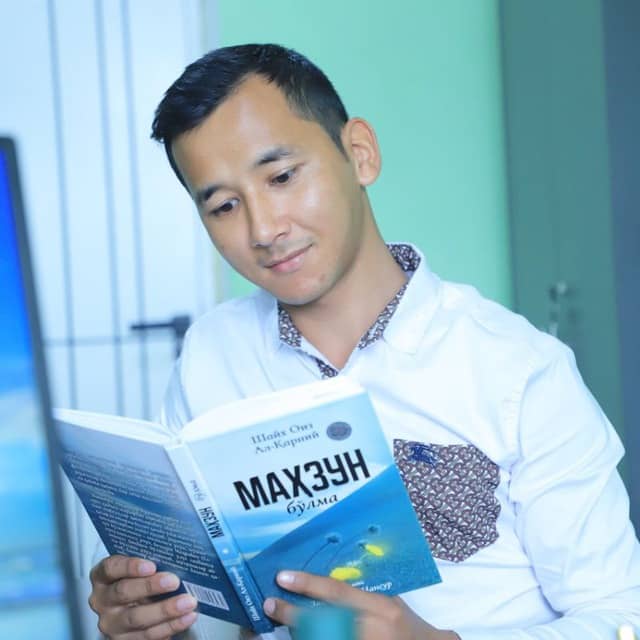SCIENCE REQUIRES OBJECTIVITY, PRECISION, AND ETHICAL RESPONSIBILITY

Today’s interlocutor is Doctor of Philology, Professor, People’s Poet of Turan, Academician of the International Academy of Sciences, Head of the Department of Press History and Journalism at the Nizami Ganjavi Institute of Literature, Azerbaijan National Academy of Sciences, laureate of numerous international awards, distinguished literary scholar, well-known poet and publicist, and a member of the Azerbaijan Writers’ and Journalists’ Union, Vuqar Akhmed.
Childhood is the happiest and purest season of our lives. All future dreams start in childhood. So let’s begin our conversation from your childhood…
— I always remember my childhood with particular reverence. Childhood is the first stage of a person’s emotional world and imagination; it is the first school where the soul is formed. The desires, fears, and simple joys that arise there form the foundation of future creativity and perception of the world. That is why it is appropriate to begin our conversation from my childhood — both my poetic and scientific interests can be traced back to that period.
Childhood dreams come to mind, My mischief and playful charms. Crying and laughing, Being upset with adults over anything.***It was full of sweets, I would wear gloves when it snowed. The last night of childhood was beautiful, It was a mugham, a ghazal for me.***Childhood dreams come to mind, Frightful winter tales, Little gifts in Novruz trays, The boys and girls of those years.
My first freedom ran and hid, In hide-and-seek my joy was plenty, The taste of sweet tea and salty bread, I still recall the delight of my first appetite.***We were very happy, lucky then, I never thought of the beginning or the end. Childhood dreams remain in my memory, And there was a child named Vuqar.—
Your poems and songs are full of delicate emotions. For you, what is the greatest source of inspiration — people, nature, love, or history?
— The sources of inspiration are diverse. For me, the strongest is the human being themselves — their inner world and love. Yet, the memory of the people, national spirit, and history also give poetry a rich context. Nature can sometimes be a simple metaphor or sometimes a profound silence for the soul. Inspiration cannot be tied to a single source — these elements complement each other and synthesize in poetry.— The true value of a human life is not measured by the years lived but by what one creates and the impact left on others’ hearts.
Have you ever asked yourself how you have lived your life so far?
I always carry such questions with me. I measure the value of life not by the number of years, but by the significance of the marks left. Science, teaching, literature, and family — these are activities that become history for me.— Some people want to possess everything, as if their life were enough to claim it all.
To what extent have you been able to cherish and use the blessings and opportunities given to you?
Opportunities have never been perfect, but I have tried to make the most of what was given: scientific research, publications, journalistic activity, and poetry. Particularly, I have worked in the fields of children’s literature, press history, and the topics of Southern Azerbaijan and Karabakh, achieving certain results. I consider this work a duty and a responsibility to preserve the national spirit.
To live with science requires patience, because it destroys illusions that cannot be restored. Especially, living in accordance with science is very challenging. In your opinion, what responsibilities does carrying the burden of science entail?
Science demands objectivity, precision, and ethical responsibility. It also carries a social responsibility: acquired knowledge must be shared with society and the younger generation. Patience, humility, and consistent professionalism are essential on this path.
What conclusions have you drawn from your scientific work on children’s literature? How does children’s literature contribute to forming the national spirit?
Children’s literature is a key factor influencing the early development of the national spirit. The first images, values, language, and stories given to children lay the foundation of their national consciousness. My research also shows that children’s literature is a strategic field for transmitting language, cultural values, and historical memory, which is why it deserves special attention.
You also conduct scientific work in journalism and press history. How responsible or dangerous do you consider modern journalism compared to classical journalism?
Classical journalism ideally emphasizes responsibility and objectivity. Modern journalism, however, faces rapid information flow, commercial pressures, and short-term sensationalism. These changes may sometimes weaken responsibility and lower content quality. Nevertheless, professional and ethical media still uphold classical journalism principles.
At the Nizami Ganjavi Institute of Literature, the Department of Press History and Journalism, which I lead, has achieved significant success in researching national press history and producing new scientific results. One of our achievements is the first publication of the Molla Nasreddin Encyclopedia under the leadership of academician Isa Khabibbeyli.
What needs of society does poetry satisfy today — spiritual consolation, social struggle, philosophical inquiry, or personal expression?
Poetry meets various needs: it can provide spiritual comfort, voice social-political arguments, raise philosophical questions, and express personal emotions. Each era’s poetry highlights one or several of these functions depending on its context. The most effective poem is one that resonates within the reader and stimulates thought.— In the history of Azerbaijani poetry, there are geniuses like Nizami, Khagani, and Fuzuli.
How do modern poets use their legacy? Do they study it sufficiently?
Learning from the great classics is essential — their aesthetic, philosophical, and linguistic capacities provide rich resources for contemporary poetry. Many modern Azerbaijani poets draw from this legacy, yet it requires both deep study and creative transformation. In my observation, deep analysis of the classics remains relevant, and many approach this legacy with new layers of meaning.
— Today’s Azerbaijani poetry: Rainy is my winter, my spring,My stringed saz plays a sorrowful tune,It is my soul, my dear flag.Both smiling and crying,Azerbaijan, Azerbaijan.We are Majnun, she is Leyli,We poured love into her, freely,Both from the North and South,Karabakh’s hair turned gray,Azerbaijan, Azerbaijan.Flying high, flying high,I travel the road to Savalan,Praying to the Creator.I say to my Tabriz: “Life!”Azerbaijan, Azerbaijan.Wounded in wars,Ripped apart its lands,Divided into two.When will it be united again?Azerbaijan, Azerbaijan.Sixty million compatriots,Our Azer-Turk brothers,Separated, our tears remain.God above, Quran on Earth,Victory, Azerbaijan.
Your poems convey spiritual quest and inner elevation. How do Sufis like Rumi, Shams Tabrizi, Nasimi, and Yassavi influence your worldview?
The spiritual search, inner purification, and ideas of compassion from Sufis have shaped my worldview. Their symbolic language and spiritual quest appear in my poetry as metaphorical layers. For me, the most valuable aspect of Sufism is its emphasis on individual responsibility and the elevation of morality.
You have participated in international scientific journals and congresses. How is Azerbaijani poetry perceived in the context of global literature?
Azerbaijani poetry is increasingly recognized in international forums — especially for contemporary topics, national motifs, and translations. Based on my experience in congresses and journals, Azerbaijani poetry is recognized for its unique voice and attracts attention abroad.— Works that provide pleasure, spiritual nourishment, and invite reflection on life and the human soul are rare today.
How do 20th–21st century Azerbaijani poetry and prose differ?
The 20th–21st centuries demanded flexible literary forms due to national liberation, social, and ideological upheavals; the 21st century provides a more magical and multifaceted expression within globalization, new media, and individual freedom. In prose, the transition from realist and modernist traditions to postmodern and experimental techniques is evident. In both eras, the dialogue between content and form enriches the literary language.
Are works being created today that will endure in eternity?
Yes. Works that reflect deep human issues, the spirit of the times, and original aesthetic search are created in every era. Both form and content must hold value for literature to endure.— Writing about masters is both easy and difficult. Easy because you know their creative path and friends well.
Could you share your thoughts on your mentors and their place in your creative and life journey?
My mentors include both classical and contemporary scholars and poets. Their lessons, critiques, and personal guidance have taught me scientific methodology and poetic taste. Each mentor has left an imprint on my creative and pedagogical work, enriching my worldview.— As A. Krylov said: “A critic shows the flaw with one hand and crowns the beauty with the other, refining taste.”
As a professor and poet, what criteria do you rely on when analyzing and critiquing a work?
Firstly, I consider the text’s aesthetic quality, linguistic accuracy, and conceptual coherence. Then context: the author’s intent, historical-cultural background, and genre conventions. Critique must be constructive and objective — the aim is not to destroy the work but to reveal its potential. Academic requirements, sources, and fact-checking are also essential.

Jakhongir NOMOZOV, is a young poet and journalist from Uzbekistan. He is also a Member of the Union of Journalists of Azerbaijan and the World Young Turkic Writers Union.
